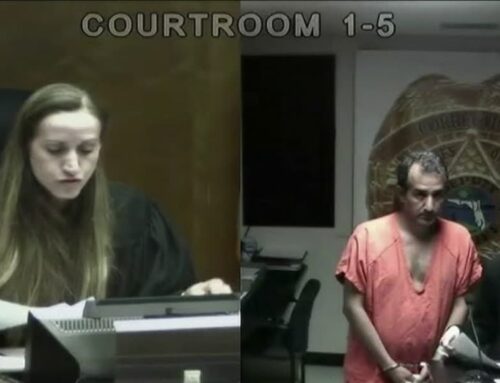Understanding Citizen’s Arrest in Florida: What You Need to Know
Citizen’s arrest is a concept that has been around for centuries, and while it may seem like something out of a superhero movie, it’s actually deeply rooted in common law. In this post, we’ll dive into the specifics of citizen’s arrest, its limitations, and its implications for everyday citizens in Miami, Florida. By understanding the legal intricacies of citizen’s arrest in Florida, you’ll be better prepared to navigate real-life situations where it might come into play.
What is Citizen’s Arrest?
A citizen’s arrest is a legal act where private citizens have the authority to arrest someone without a warrant. This authority varies depending on the crime committed, with different rules applying to misdemeanors and felonies. Let’s break down the requirements for each type of offense.
Misdemeanor Citizen’s Arrest: Breach of the Peace
For a private citizen to have the authority to arrest someone for a misdemeanor, two conditions must be met:
- The offense must constitute a breach of the peace.
- The offense must have been committed in the presence of the arresting citizen.
The breach of peace requirement is interpreted quite liberally. For example, resisting arrest without violence and driving under the influence (DUI) have both been considered misdemeanors constituting a peace breach.
Felony Citizen’s Arrest: Probable Cause
A private citizen has the authority to arrest a person for a felony under the following circumstances:
- The felony was committed in the citizen’s presence.
- A felony has been committed, and the citizen has probable cause to believe and does believe that the person to be arrested is guilty of committing it.
It’s important to note that private citizens can make a warrantless arrest even if they have time to report the crime to a law enforcement officer and obtain a warrant. However, the citizen must justify their failure to do so by proving that the person arrested was guilty of the felony.
No Citizen’s Arrest for Traffic Infractions
A key limitation of citizen’s arrest is that it does not apply to traffic infractions. Private citizens have no right to arrest someone for a traffic violation.
How to Make a Citizen’s Arrest
Making a citizen’s arrest is serious and should only be considered in exceptional circumstances. Understanding the legalities and risks involved is crucial before attempting to perform a citizen’s arrest.
Step-by-Step Guide to Making a Citizen’s Arrest
- Evaluate the situation: Before taking action, assess the situation to determine if a citizen’s arrest is necessary and appropriate. Ensure that the offense meets the criteria for a citizen’s arrest (e.g., a breach of peace for a misdemeanor or probable cause for a felony).
- Ensure your safety: Your safety and the safety of others should always be your top priority. Do not attempt a citizen’s arrest if it puts you, the suspect, or others in danger. If the situation is volatile, it’s best to call law enforcement and allow them to handle the matter.
- Observe the offense: To make a citizen’s arrest, you must witness the misdemeanor committed in your presence or have probable cause to believe a felony has been committed. Make note of important details, such as the suspect’s appearance, actions, and any evidence at the scene.
- Inform the suspect: Clearly and calmly inform the suspect that you are making a citizen’s arrest. Explain the reason for the arrest and the specific offense they have committed.
- Use minimal force: When making a citizen’s arrest, use only the amount of force necessary to restrain the suspect. Excessive force can lead to legal consequences, such as assault or battery charges.
- Call law enforcement: As soon as possible, contact the police and inform them of the situation. Provide them with details about the offense, the suspect, and your location. Remain on the scene until law enforcement arrives to take custody of the suspect.
- Cooperate with law enforcement: Once the police arrive, cooperate fully with their investigation. Provide them with any information or evidence you have, and be prepared to give a statement about the events leading up to the citizen’s arrest.
Important Considerations
- Making a citizen’s arrest carries potential legal risks, such as false imprisonment, assault, or battery charges. Always consider the potential consequences before taking action.
- Laws and regulations regarding citizen’s arrest may vary by jurisdiction. Consult with a criminal defense lawyer and familiarize yourself with local laws before attempting a citizen’s arrest.
- Remember that private citizens have no authority to arrest someone for traffic infractions.
Understanding the Risks and Responsibilities
While a citizen’s arrest may seem like a powerful tool for maintaining order, it’s crucial to understand the risks and responsibilities involved. Arresting someone without proper legal authority or justification can lead to civil and criminal liability, including charges of false imprisonment, assault, or battery. Additionally, determining probable cause and evaluating whether a crime constitutes a breach of the peace can be challenging for individuals without legal training.
Citizen’s arrest is an intriguing aspect of common law that empowers private citizens to take action against certain criminal offenses. However, it’s essential to recognize this authority’s limitations and potential legal ramifications. Before attempting a citizen’s arrest, it’s wise to consult with a criminal defense lawyer to understand your rights and responsibilities better. If you find yourself in a situation where you believe a citizen’s arrest is necessary, always prioritize your safety and contact law enforcement as soon as possible to handle the situation professionally and legally.








